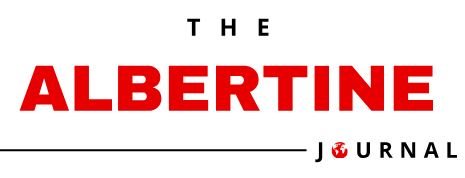As Uganda experiences a rise in population, there is a need to feed the growing population so as to propel implementation of Sustainable Development Goal (SDG) two which aims to end hunger, achieve food security and improve nutrition and promote sustainable agriculture.
A rise in population is associated with increased pressure on land, forest degradation, and land fragmentation-making families overcultivate their plots to maximise crop yield.
In my interaction with Barack Mugenyi, a poultry, vegetable farmer and a victim of land fragmentation who owns a plot of land (30×50 feet) reveals a secret of reaping gold from farming black soldier flies.
Black soldier fly (BSF) being a source of protein, it has boosted Barakas chicken and vegetables in terms of weight, high growth rates.
Being a smallholder farmer of black soldier flies capable of producing 30kgs of 5-day old larvae in a week has earned him income through the sale of larvae to the nearby poultry farmers, where he sells a kilogramme of 5-day old larvae at sh10,000 and the surplus is fed on waste to act as feed to his chicken.
He avers that along the value chain he harvests frass for crop fertilisation as organic source of fertiliser and the surplus is sold earning him sh1,500U per kilogramme harvested.
The use of frass has not only boosted his crops but also saved the environment through, reduction on the use of synthetic fertiliser-reduces the reliance on chemical fertilisers, and thus prevents rapid nutrient leaching.
Gold from black soldier fly
Lucrative ventures in agriculture earns cash to farmers through the sale of products we term as gold. Below are some of the golds we get from black soldier flies farming.
Eggs
Black soldier larvae lay eggs ranging between 500-900 which are collected, stored in a conducive environment either for future use or hatching.
Economic value.
They are a source of income once sold: they can be hatched to form larvae which recycles wastes hence waste management and are a source of jobs to people who collect and add value to the eggs.
Larvae
This is the most important stage to a farmer as a farmer reaps a lot of benefits and the stage is differentiated by instars which range from first to fifths instar in growth.
Economic value.
Introduction of a five-day-old llarvae in food waste management plays a crucial role in waste recycling and boosts the larvae which is either fed directly on chicken, fish, piggery or processed to feed for future use.
This earns a farmer a fast income in the shortest period as the larvae boosts growth since it contains crude 99% protein content.
Environmental value.
Larvae plays crucial role in retaining carbon by 71.46% than aerobic digestion which retains only 51.38%, act as a mineral supplement in animal and poultry feed formulations hence reducing on the use of conventional feeds which requires machine processing that emits fumes inform of carbon hence polluting the environment.
Larvae also absorb methane gas from rotting food wastes hence reduction on the release of toxic greenhouse gasses.
Frass
This is a bi-product of black soldier fly containing the exoskeleton, food remains after being fed on by the larvae.
It’s in the process of getting the pupa through sieving which separates the pupa from the fed on waste.
Economic value.
The use of frass has been proved to prevent nematode attack on crops like banana hence boosting crop growth. It earns a farmer with income after selling. It saves a farmer from the use of expensive organic and inorganic fertilisers.
The process of value addition such as packaging earns jobs to people hence give them income for a living.
Environmental value.
Promotes organic farming hence saving the environment from synthetic use of chemicals, soil modifier hence providing favourable conditions to crop growth and soil living organisms.
Improves on soil texture hence reducing on the effects of climate change such as erosion, promotes biodiversity and the carbon content in frass improves on soil health hence promoting plant growth.
Oil.
This is an extraction from black soldier fly’s larvae highly rich in lauric acid found on palm oil and coconut oil known for antimicrobial properties which helps to protect against unhealthy gut bacteria.
Economic value
The sale of BSF oil earns farmers with cash hence improving farmers’ living, addition of black soldier fly oil in animal and poultry feeds act as feed supplement which provides a valuable dietary fiber known for boosting animal health.
Extraction of BSF oil is a lucrative business to craftsmen who make BSF machines due to lauric acid, BSF oil can be used as an ingredient in cosmetics and soap industry for making jelly and detergents.
Therefore, there is a need by the Ministry of Agriculture, Animal, Industry and Fisheries to extend and train farmers to expand production with a way to obtain protein for animal feed, process and recycle on-farm waste and generate by-products such as frass and leachate for soil improvement.
Systems range in scale from small bins and containers to larger-scale systems with dedicated mating enclosures.
The Author is a Researcher, Senior Agricultural Extension Officer, Agribusiness Consultant and CEO at Royal Agro-Input suppliers Buhimba Shop in Kikuube district.


